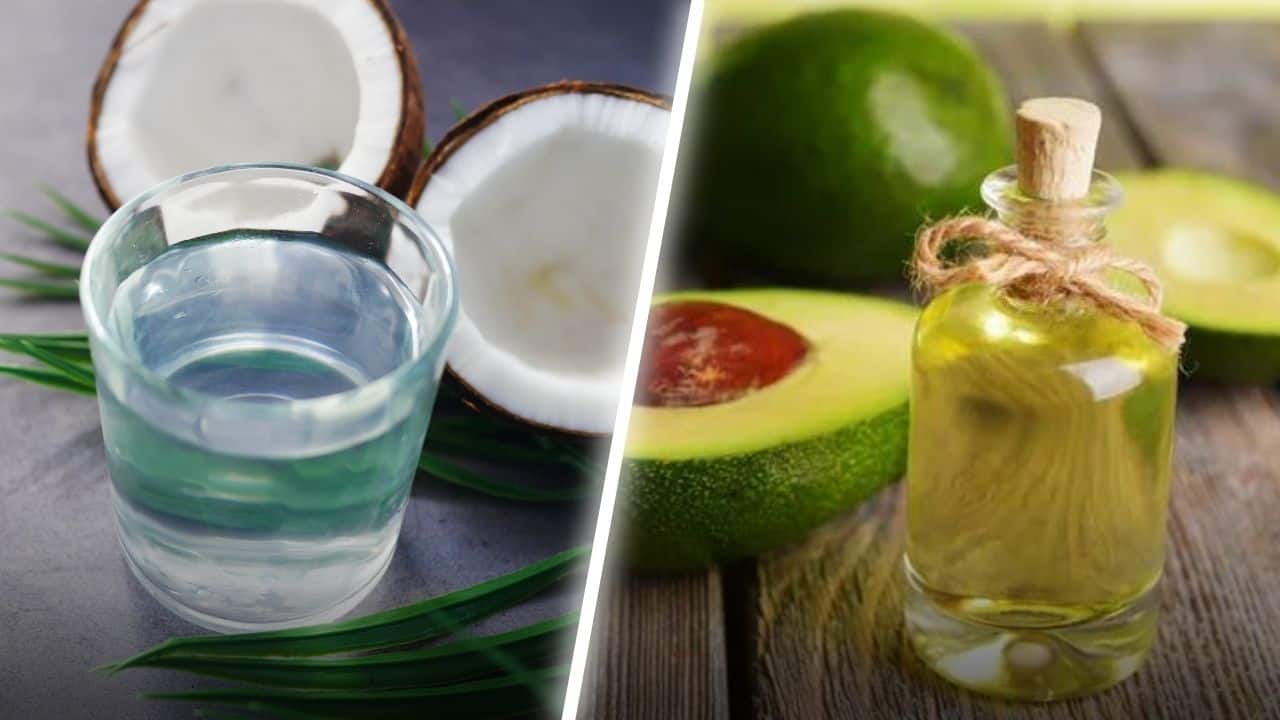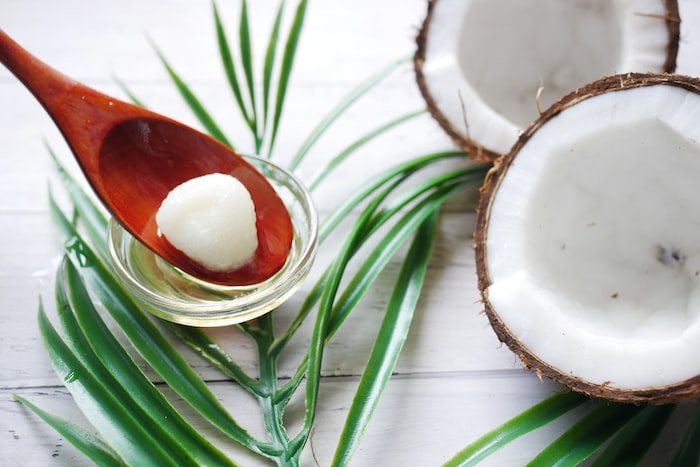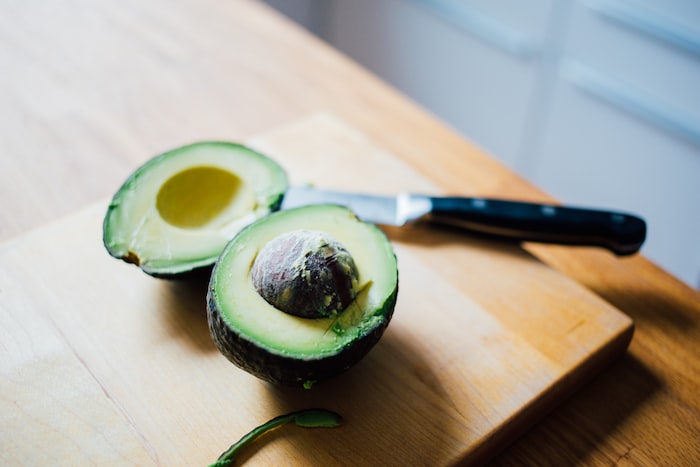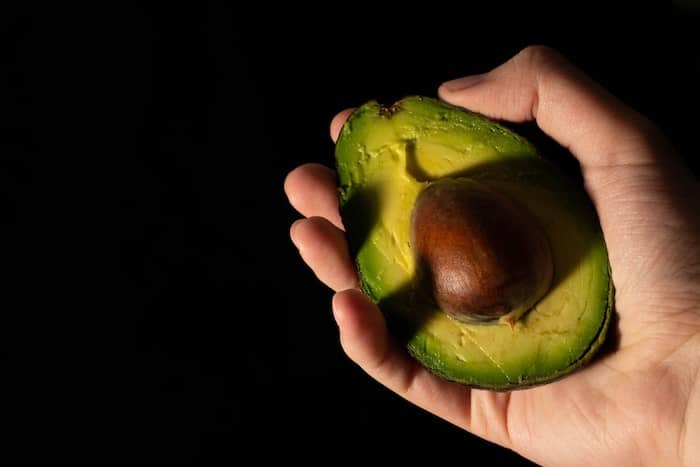Coconut oil has become one of the top superstars in the world of superfoods. However, another type of oil is starting to enjoy a rise in popularity, which is none other than avocado oil. This fame is probably because of the high demand for avocados that have now become embedded in the culinary psyche.

As people become more and more focused on their health, the enticing appeal of the heart-healthy avocado leaves them wondering if avocado oil can be a great alternative to coconut oil. Is coconut oil or avocado oil healthier? Which of these two oils is a better option?
What is Coconut Oil?
For many years, coconut oil has been used in South America, Africa, and Asia. It was also frequently used during the 20th century in American processed food under the name palmitic acid or palmitin. Palmitin is the most common form of saturated found in both animal products and plants.
How is Coconut Oil Produced?
Coconut oil is extracted from the milk and meat of coconuts. The refined coconut is deodorized and bleached to achieve a more neutral flavor. On the other hand, virgin coconut oil will only receive this designation if there are no additional solvents that were used throughout the process of extraction.
There are also additives in refined coconut oil that extends its shelf life. But on its own, refined coconut already has a shelf life that lasts for up to two years. Once it is completely cooled, coconut oil is semi-solid. However, it returns to its liquid form even if you just apply a minimal amount of heat.

Health Concerns of Coconut Oil
The fat content of coconut oil is the main reason for the controversy around it. It has something to do with coconut oil being almost totally made of saturated fatty acids.
The health and wellness world frowns upon saturated fats, with many studies revealing that these saturated fats can make you more prone to stroke and heart disease. As far as nutrition is concerned, one serving size or one tablespoon of coconut oil contains approximately 117 calories and around 12 grams of fat, with saturated fat making up 11 grams of it.
But the fat structure in coconut oil is not the same as that of the saturated fats present in animal products. MCTs or medium-chain triglycerides make up the saturated fats found in coconut oil. These MCTs are easier for the human body to burn off compared to the long-chain triglycerides found in animal fats.
Health Benefits of Coconut Oil
Some experts don’t agree with claims of coconut oil being unhealthy. Several studies reveal that coconut oil can increase good cholesterol, which means that it can help boost heart health, something that you cannot expect from other types of fat.
Another study also revealed that subjects suffering from coronary heart disease and following a meal plan with coconut oil included enjoyed an increase in their good cholesterol levels.
Coconut oil is also a very popular ingredient in many kitchens all over the world. People who want to stay away from using animal products often use coconut oil because it is considered a great substitute for butter.
Coconut oil has a higher smoke point compared to other common types of cooking oils such as olive oil, allowing it to stand up even to high heat. Oils reach their smoking point the moment it begins to smoke, breaking down at the molecular level. The moment the oils go beyond the smoking point, they will release free radicals into the body, leading to cell damage.
What is Avocado Oil?
A relative newcomer in the world of cooking oils, avocado oil is seeing rising popularity. Avocado oil is produced in the same way as coconut oil. The fruits are cold pressed to allow the oil extraction. Unrefined avocado oil is more readily available than refined avocado oil although you can also find these two types in most grocery stores.
Unrefined avocado oil maintains its greenish color and the slightly fruity flavor of avocado. On the other hand, refined avocado oil has undergone a slight bleaching process, which results in a paler yellow color. The shelf life of avocado oil is approximately 9 to 12 months. Just like canola and olive oil, avocado oil stays in its liquid form at room temperature.

Potential Health Benefits of Avocado Oil
Avocado oil, unlike coconut oil, has high levels of monounsaturated fats such as oleic acid. It contains vitamin E as well while helping your body absorb other types of fat-soluble vitamins such as vitamins K, D, and A.
Avocado oil is also found to contain the antioxidant called carotenoid, as well as lutein, and can also offer protection from the macular disease that can cause vision concerns later in life. In terms of nutrition, a single tablespoon of avocado oil seems to be slightly better than coconut oil as it contains approximately 124 calories with 14 grams of fat, and lower than 2 grams of this fat comes from saturated fat.
Despite its lower popularity compared to other types of cooking oils, the past few years have seen a surge in the popularity of avocado oil, possibly because of the craze about avocados as a whole. The extremely high smoke point of avocado oil at about 520 degrees Fahrenheit is another reason why it is a very popular option for many cooking techniques that use extremely high heat such as deep frying and stir-frying.

Which is Healthier: Coconut Oil or Avocado Oil?
For arguments in favor of coconut oil, what you will get here is the good type of saturated fat or the kind that will support your gut through the promotion of the good of good bacteria while boosting the levels of HDL or good cholesterol.
On the other hand, avocado oil is richer in monounsaturated fats which allows your body to become more efficient when it comes to absorbing vitamins.
Both coconut oil and avocado oil have impression profiles nutrition-wise, and the specific oil that your body will prefer, if ever it has a preference in the first place, will mostly depend on your distinct body makeup.
The concept of bio-individuality states that what works for you might not work for someone else. It means that everyone should learn and respect their own needs, including the lifestyle practices and foods that work best for them.








